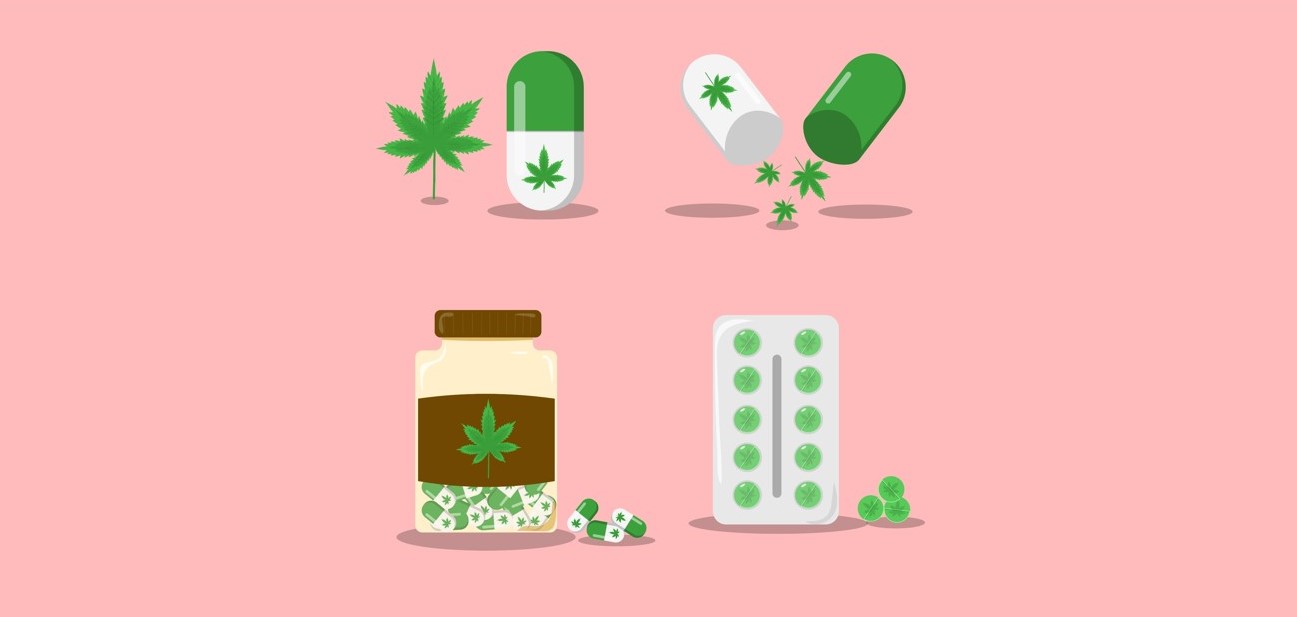By Alex Liu
Hong Kong, 2 November 2022: A cannabis compound which has become increasingly popular in Hong Kong will soon be banned, with heavy penalties for trafficking or possession. Cannabidiol, widely known as CBD, will be made illegal from 1 February, effectively shutting down a burgeoning industry where the substance is available in food and drinks, therapeutic treatments and beauty products.
The move comes after the government consulted the Action Committee Against Narcotics – a non-statutory advisory body with members from the fields of social work, education, medicine and community service – and industry representatives. The authorities reported there were no major objections to the banning proposal. It was subsequently approved by the Legislative Council last month.
Background
CBD is one of more than 100 compounds found in the cannabis plant and, by itself, does not cause a “high”. Advocates say it can help with anxiety, pain relief and provide numerous other benefits, although Hong Kong’s Security Bureau says such claims “lack authoritative scientific proof”. While some experts agree CBD has potential, there are still a lot of unknowns. CBD has, thus far, not been listed as a substance controlled under international conventions.
According to a report from the World Health Organization: “In humans, CBD exhibits no effects indicative of any abuse or dependence potential. To date, there is no evidence of public health related problems associated with the use of pure CBD.”
CBD in Hong Kong
The government takes a firm stance against cannabis and has repeatedly stated that the use, cultivation, manufacturing and trafficking of cannabis and controlled cannabis products are illegal and will remain so. Even so, products containing CBD have gained popularity here in recent years, with themed cafes and bars offering CBD-infused food and drinks. Shops and online stores sell it in oils, extracts, capsules, patches, gumdrops and even vapes.
However, all this is about to end due to the government’s concern over the presence – albeit miniscule – in CBD products of tetrahydrocannabinol, or THC, the main psychoactive constituent of cannabis. THC is illegal in Hong Kong. According to a briefing paper presented to LegCo in June: “Where CBD is extracted from cannabis, it is very difficult to isolate pure CBD from cannabis, and it would not be practical to completely remove THC impurities from CBD isolates. There is also a risk of contamination by THC during the production process. It is nearly inevitable that CBD products manufactured from CBD isolates contain certain levels of THC, even though at trace levels or levels below the detection limits of various analytical methods.”
Hence, the authorities have begun cracking down on CBD businesses in the past year, with more than 30,000 CBD products suspected of having THC seized. Dozens of individuals have been arrested, although no charges have been laid and all are currently on bail pending further investigation.
‘Gateway to drugs’
Youth sector workers in Hong Kong have voiced concerns that CBD use offers a gateway to cannabis and other drugs. The South China Morning Post recently reported that the number of drug-related social media posts in the city has more than tripled over the past six years. Content concerning CBD products has soared, with the number of related views increasing from 5,707 in 2019 to 43,980 in 2021.
“Many people have underestimated the risk, and the severity of the damages marijuana can afflict,” Michael Leung, head of the Hong Kong Federation of Youth Groups’ Crime Prevention Centre, told the newspaper. He pointed out how social media posts created for the purpose of selling products used animated characters, internet memes and hashtags to make them appear “trendy and chic”.
Government anti-drug messaging consistently emphasises the harmful nature of cannabis, pointing out it can lead to addiction, reduced concentration, impaired judgement, mental health issues, anxiety, depression and irritability.
Next steps
With their decision to outlaw CBD, the authorities are ending any uncertainty regarding its status. They did consider setting up a testing system to check for THC in CBD products, but noted there was no standard practice for regulation and compliance. The LegCo paper declared controlling CBD to be “the most appropriate and clear-cut option”.
To help those in the CBD industry and the general public prepare for the ban, the government has set up voluntary disposal boxes at 10 locations across Hong Kong Island, Kowloon and the New Territories. “The trade and the public should arrange early disposal of any CBD products in their possession to avoid contravention of the law after commencement of the legal control on CBD on February 1, 2023,” remarked a Security Bureau spokesman.
Summary
CBD will join more than 200 substances – including cocaine, heroin and ketamine – which are listed in the Dangerous Drugs Ordinance (Cap. 134). The public are reminded of Hong Kong’s zero tolerance policy towards drugs and the heavy penalties that await citizens who fail to comply. From 1 February, trafficking and illicit manufacturing of CBD will carry a maximum penalty of life imprisonment and a fine of HK$5 million while possession and consumption will warrant up to seven years in jail and a maximum fine of HK$1 million.
A Partner in BC&C since 2000, Alex Liu’s key areas of practice include commercial and corporate litigation, investigations by governmental bodies such as the SFC, ICAC and Commercial Crime Bureau, Criminal Matters in general, insolvency and debt restructuring, intellectual property, defamation, property and commercial contract drafting. He can be contacted at alex@boasecohencollins.com.



